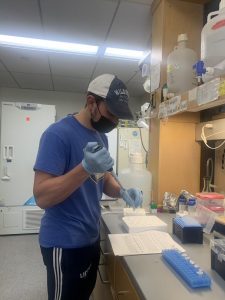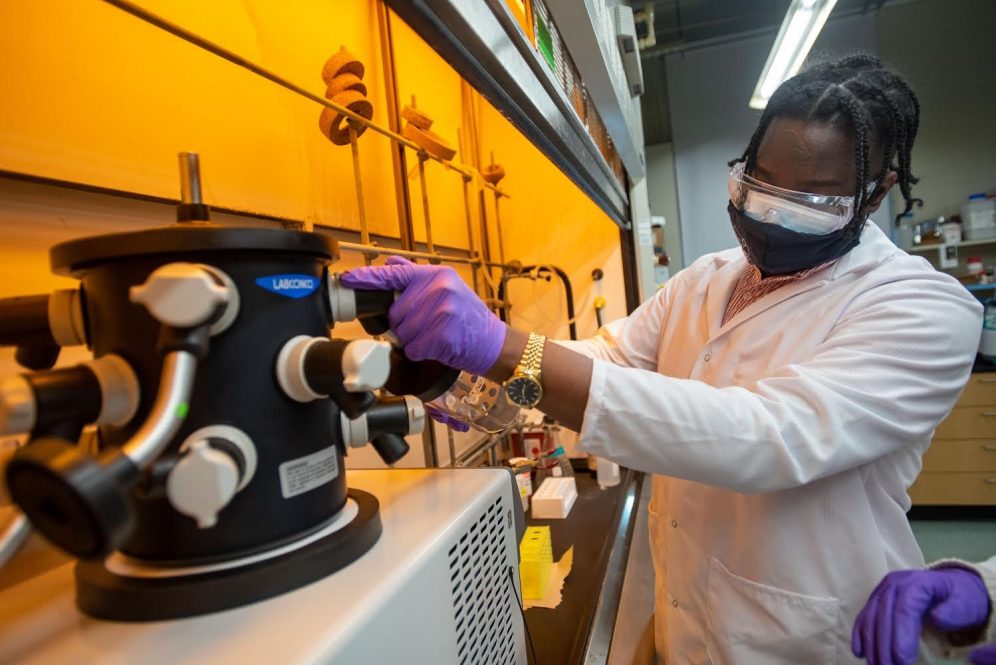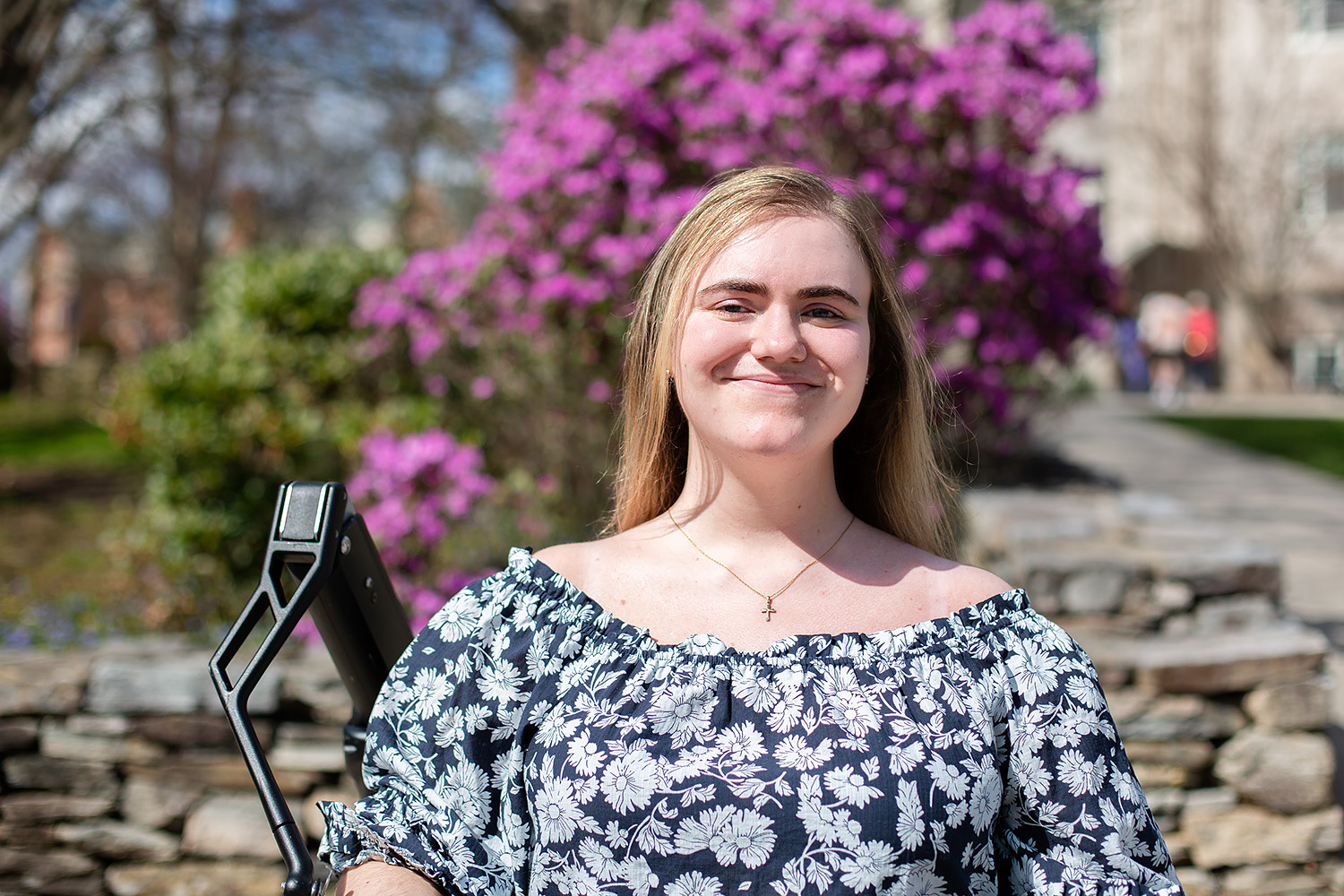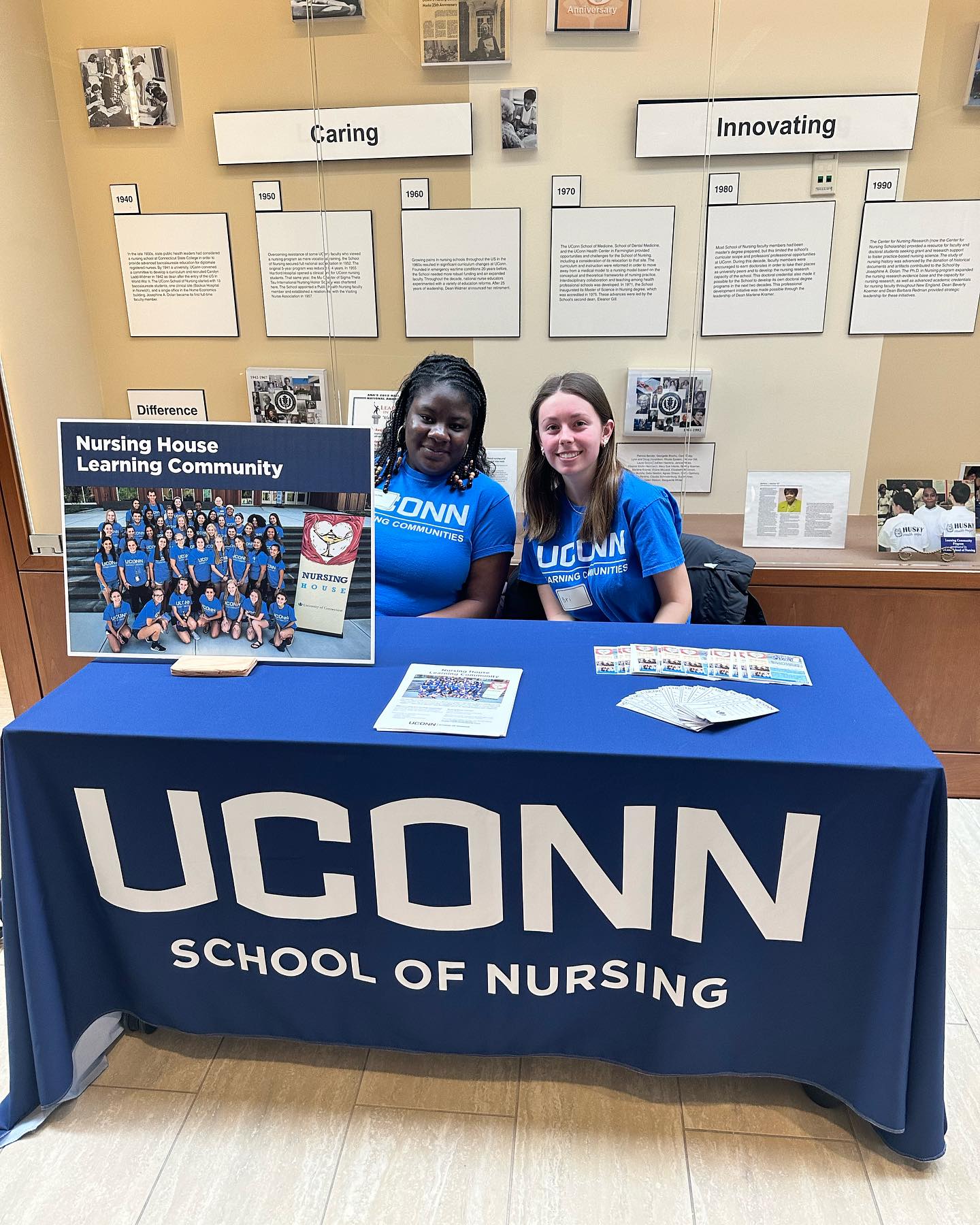When Nichali Bogues ’22 (CLAS) graduates from UConn, his dream career is to be a cardiothoracic surgeon. So scientific research was on top of his priority list.
But the rising senior structural biology and biophysics major didn’t expect the McNair Scholars Program to give him so much insight into what his future career will be like.
“I would say it (the McNair program) gave me an opportunity to love my major even more because it shows me how many real-life applications I can use my major for,” Bogues said.
“I can go from medical engineering to clinical trials and applications. It is a program that will push you to achieve more.”
Bogues and Juan Colberg-Martinez ’23 (CLAS) are among 22 UConn students in the Science, Technology, Engineering and Mathematics (STEM) fields participating in the McNair Scholars summer program. These students have been awarded funding to pursue their research this summer on the Storrs campus for eight weeks.
UConn is one of 150 schools nationwide to receive funding from the Ronald E. McNair Post-baccalaureate Achievement Program. The McNair program fosters opportunities to advance in STEM research experiences throughout undergraduate careers for underrepresented first generation, and limited income college students.
“The McNair Scholars Program provides excellent guidance for the professional world,” Bogues said. “It helps you to become a more concrete and assertive researcher while forming long-term positive relationships with professors that do research in your field of interest.”
Bogues is currently researching the metal ruthenium(II) complex for its ability to combat antibiotic resistance, a rising concern among health care professionals. He says ruthenium is an element that can be used for photodynamic therapy, a method often used to treat cancer.
“In terms of real-world outcomes, we are providing a new way to sterilize catheter tubes by using blue light to make the ruthenium become active and reactive, thus killing bacteria in the catheter,” Bogues said. “This would make the tube more sterile and ready for medical use.”
One of the most important things he learned as a McNair scholar is networking in research. He explained that networking with peers, professors and other researchers helped him learn more about his career because he gets to work directly with experts in the field.
Through his research, Bogues said he was thankful to have worked with McNair mentor and program coordinator, Renee Gilberti, Ph.D., graduate mentor and National Science Foundation fellow Caroline Donaghy, and Alfredo Angeles-Boza, associate professor of chemistry.
Gilberti says the McNair program has many opportunities for outreach in STEM research and that first and second-year students can apply during February to become research apprentices for the following fall semester. Second- and third-year students can apply to be McNair Scholars and evolve into independent researchers for all remaining semesters, including on the on-campus a summer intensive research program that focuses on research, professional development and graduate school application preparation for more advanced degrees in STEM.
“There are so many wonderful aspects to my work with students, but seeing their growth and seeing them recognize their potential is at the top,” Gilberti said.
“Meeting one-on-one with each student, year-round, affords me the chance to help them capitalize on their strengths, hone more professional skills, and many in-depth conversations to reflect on their career trajectory.”

“A lot of the research experiences for undergraduates were online and I wanted a more in the lab type of research,” says another McNair scholar, Juan Colberg-Martinez, a rising junior majoring in molecular and cellular biology. “Renee offered me the chance to do McNair research this summer so I am thankful for that.”
Colberg-Martinez was recommended by a friend in UConn’s Louis Stokes Alliance for Minority Participation (LSAMP) to apply for the McNair program. His research focuses on looking at antifolate compounds to treat rheumatoid arthritis (RA) cells. These cells are located inside joints that play a role in the start of the disease which degrades bones and causes inflammation in between joints. Currently, methotrexate is used to treat patients with RA but it is not always responsive for all patients, according to Colberg-Martinez.
Hence, Colberg-Martinez is working with Charles Giardina, professor of molecular and cellular biology, to see if a different could be a better substitute for RA patients. To test this, Colberg-Martinez also works with Didem Ozcan, a Ph.D. student in Giardina’s lab. They use techniques like cell staining, cell proliferation assays and quantitative polymerase chain reactions to measure the effects of UCP1162 on RA.
From Colberg-Martinez’s experience with LSAMP, a program designed to support underrepresented students in the science, technology, engineering and mathematics field, he met Giardina and became interested in his research.
“Get in touch with professors as soon as possible,” Colberg-Martinez advised students thinking about research. “Professors actually love talking about their research, they like when people are interested in their research. If you find a professor that does research that you are interested in, I would just get in touch with them.”
After his research, Colberg-Martinez hopes to attend graduate school to obtain a Ph.D. in the biological sciences field and study disease treatments, and encourages any eligible student who is curious about research in STEM to contact Gilberti by email.
“To be a part of the McNair experience a student definitely does not need to know what kind of research project they might want to conduct, or even that they do or do not want to pursue graduate study; this is challenging to know without exposure to research experience,” Gilberti said. “The McNair program helps every student with every step.”



